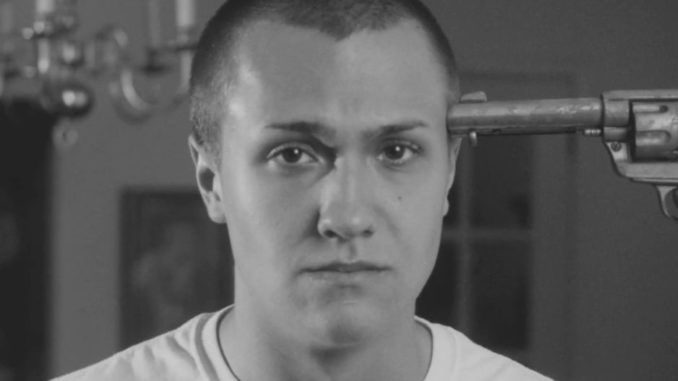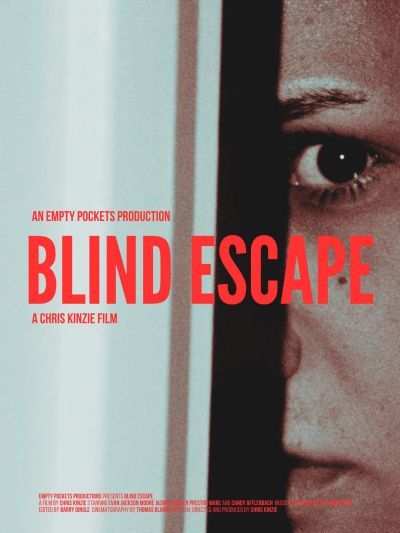
Rating: C+
Dir: Chris Kinzie
Star: Evan Jackson Moore, Jazmin Diebler, Preston Ware, Candy Afflerbach
We’re only in mid-January, but if I see a better photographed film this year, I’m going to be impressed. Kinzie chose to shoot it in black-and-white, because of his love of silent film from the twenties, in particular the German expressionists. While this is very different in content, the look is excellent, especially considering it’s also shot in 4:3 ratio, something rarely seen in content these days, even on television. Then, at the end, it suddenly explodes into colour, and you feel like a bear coming out of their cave after hibernating all winter. It almost hurts to look at, after eighty minutes of nothing but black or white – with not much in between, either.
The plot? Oh, yeah. A fortuitous wrong number gives unemployed Fred Herman (Moore) an opportunity, as the call is from Sug (Afflerbach), who is convinced he’s her long-lost nephew, Charlie. Fred is supremely uninterested, until he hears the word “inheritance”. Suddenly, he is Charlie, and living in Sug’s house while he tries to figure out how to get his hands on the thirty thousand dollars in question. However, complicating matters, he falls for their next door neighbour, Maggie (Diebler). This is a problem, because of her abusive boyfriend, Joe (Ware), who has some equally repellent friends. It quickly becomes apparent, especially after Joe discovers Charlie’s real identity, that things for Fred/Charlie can end in one of only three outcomes.
a) Badly
b) Very badly
c) In the worst possible way.
 And there’s the issue. From that point on, you’re largely waiting for the film to catch up with you, and get around to providing the specifics of the inevitable. This wouldn’t necessarily be a problem, except the characters here are not exactly fun to be around. Fred’s an opportunist con-man who, in his buzz-cut and white T-shirt, looks almost neo-Nazi. Joe is a manipulative thug. Sug, a dottled old lady. And Maggie is the kind of character for whom you certainly feel deep sympathy. But “pity” and no agency of her own, isn’t a great foundation on which to build a protagonist. This all could well be deliberate, but is a difficult trick to pull off, and the actors here fall short, to varying degrees.
And there’s the issue. From that point on, you’re largely waiting for the film to catch up with you, and get around to providing the specifics of the inevitable. This wouldn’t necessarily be a problem, except the characters here are not exactly fun to be around. Fred’s an opportunist con-man who, in his buzz-cut and white T-shirt, looks almost neo-Nazi. Joe is a manipulative thug. Sug, a dottled old lady. And Maggie is the kind of character for whom you certainly feel deep sympathy. But “pity” and no agency of her own, isn’t a great foundation on which to build a protagonist. This all could well be deliberate, but is a difficult trick to pull off, and the actors here fall short, to varying degrees.
Allowance should probably be made, since seems they are mostly appearing in their first feature. It feels like one actor with more experience – probably in the role of Joe – could have gone a long way to anchor proceedings. There are still moments that work, such as Fred getting a gun and visualizing possible ways in how things could unfold (a clue: not well). But these tend to be more technically based rather than stemming from the performances. However, it always remains interesting to look at it, and Kinzie’s wearing of multiple hats give it a strong sense of creative coherence (though the audio mix has some glitches). Hopefully, he’ll get to go on to bigger things, because visually, this kicks ass.
